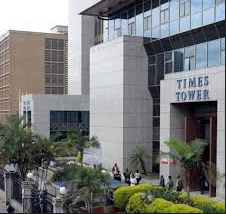

The Kenya Revenue Authority (KRA) has invited the public to
submit their views on the Draft Excise Duty (Remission of Excise Duty)
(Amendment) Regulations, 2025, aimed at overhauling the country’s tax framework
for alcoholic beverages.
In a statement issued on X (formerly Twitter), KRA said the
draft regulations have been developed by the Commissioner General on behalf of
the Cabinet Secretary for National Treasury and Economic Planning.
The public, professionals, and relevant stakeholders are
encouraged to review the proposed changes and submit their feedback by June 17,
2025.
“In compliance with the same Act, the Commissioner General…
invites interested members of the public, professionals and stakeholders to
submit their inputs and comments for consideration in finalising the
Regulations,” the Authority stated.
The draft can be accessed via the KRA website.
Submissions should be addressed to the Commissioner General,
Kenya Revenue Authority, P.O. Box 48240-00100, Nairobi, or sent via email to
[email protected].
The proposed amendments mark a significant shift in Kenya’s
excise duty remission regime. For the first time, remission benefits,
previously limited to beer, will now extend to wine and spirits.
The move is part of a broader policy agenda to boost the use
of locally grown agricultural products in the manufacture of alcoholic
beverages.
The new rules introduce definitions for key industry players
such as "compounders" (those who flavour spirits without
distillation), and outline stricter compliance and packaging requirements.
Beer producers, for example, must use at least 75% of
ingredients like cassava, millet, or sorghum grown in Kenya. They must also
adhere to set price limits and package beer in containers of not less than 30
litres.
Spirit manufacturers, including distillers and compounders,
may enjoy up to 80% excise remission if their products are made from local raw
materials and meet specified alcohol content thresholds. Spirits must be sold
between Sh1,000 and Sh1,200 per litre, and compounders are required to use
ethanol from licensed distillers.
Wine producers also face similar criteria, including a
minimum 75% local agricultural content and packaging in bottles of at least
750ml, with retail prices ranging from Sh600 to Sh800 per litre.
All manufacturers benefiting from the remission will be
required to file detailed monthly reports and comply with public health and
regulatory standards. Non-compliance could lead to revocation of remission
benefits and full excise duty enforcement.
The proposed regulations reflect government efforts to
formalize the alcohol sector, support local farmers, and promote value addition
within the manufacturing industry.











